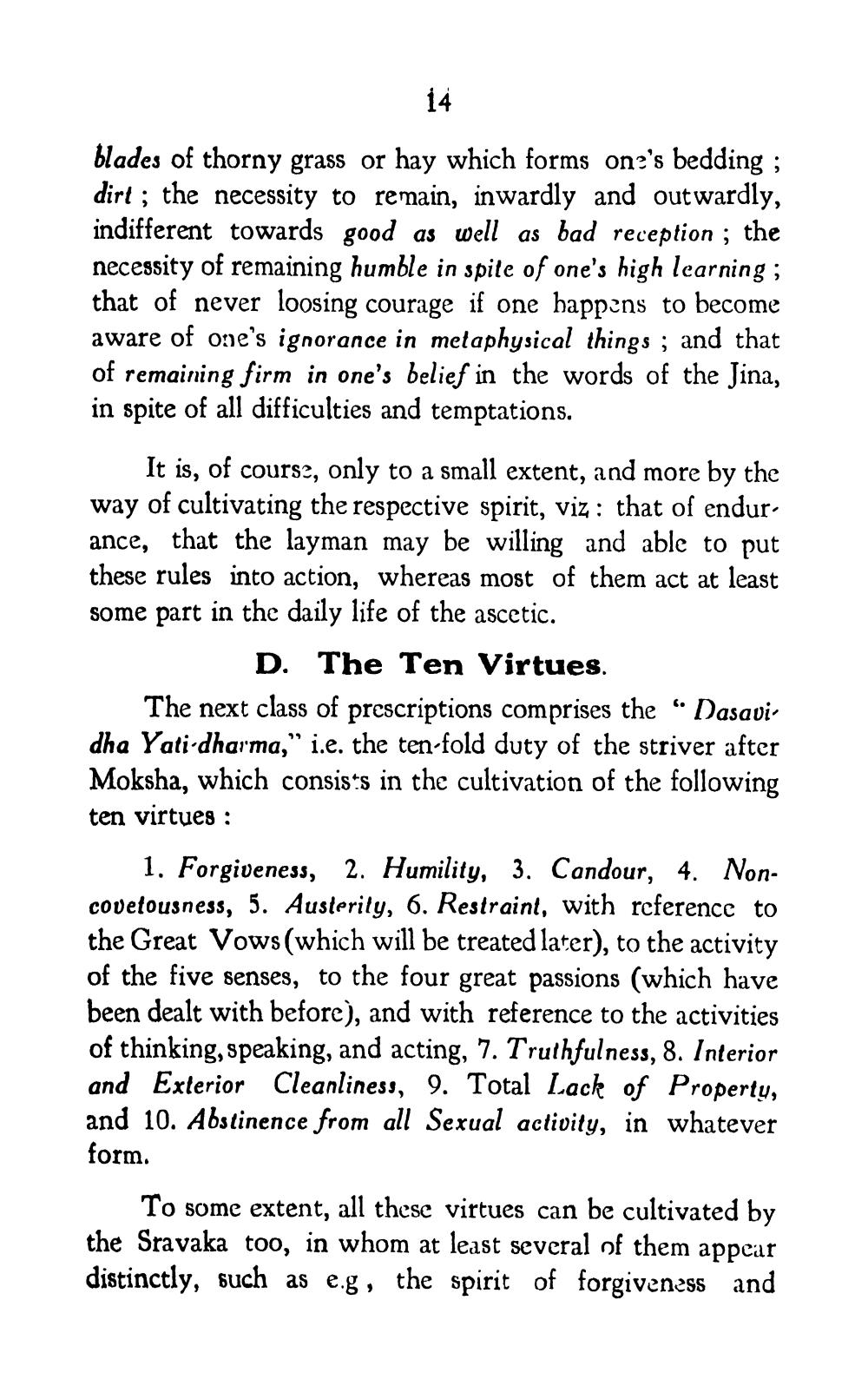________________
14
blades of thorny grass or hay which forms one's bedding; dirt; the necessity to remain, inwardly and outwardly, indifferent towards good as well as bad reception; the necessity of remaining humble in spite of one's high learning; that of never loosing courage if one happens to become aware of one's ignorance in metaphysical things; and that of remaining firm in one's belief in the words of the Jina, in spite of all difficulties and temptations.
It is, of course, only to a small extent, and more by the way of cultivating the respective spirit, viz: that of endurthat the layman may be willing and able to put these rules into action, whereas most of them act at least some part in the daily life of the ascetic.
ance,
D. The Ten Virtues.
The next class of prescriptions comprises the "Dasavi dha Yati dharma," i.e. the ten-fold duty of the striver after Moksha, which consists in the cultivation of the following ten virtues :
1. Forgiveness, 2. Humility, 3. Candour, 4. Noncovetousness, 5. Austerity, 6. Restraint, with reference to the Great Vows (which will be treated later), to the activity of the five senses, to the four great passions (which have been dealt with before), and with reference to the activities of thinking, speaking, and acting, 7. Truthfulness, 8. Interior and Exterior Cleanliness, 9. Total Lack of Property, and 10. Abstinence from all Sexual activity, in whatever form.
To some extent, all these virtues can be cultivated by the Sravaka too, in whom at least several of them appear distinctly, such as e.g, the spirit of forgiveness and




